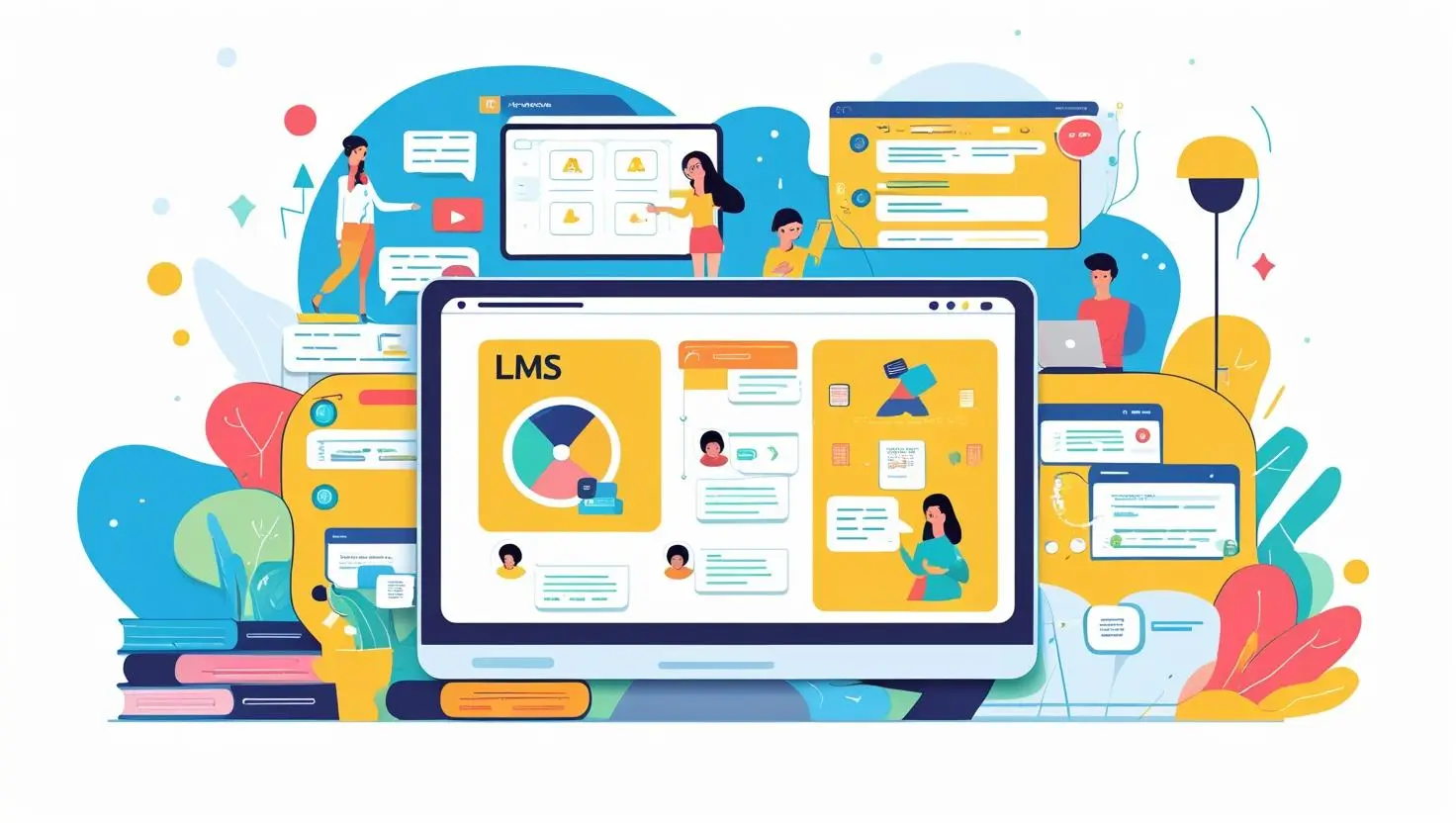Why You Can Trust the Expertise of Sonary
At Sonary, we are committed to providing accurate and trustworthy information to help you make informed decisions. Our research process is meticulous, transparent, and guided by a dedication to maintaining the highest standards of integrity.
Unlike many other review platforms, we conduct in-depth evaluations of the software and services we feature. Our expert team tests and actively uses the tools we review to understand their features, performance, and value comprehensively. Our assessments are based on real-world use, giving you insights beyond surface-level descriptions.
Our research methodology includes analyzing key consumer factors such as pricing, functionality, device usability, scalability, customer support quality, and unique industry-specific features.
This hands-on approach and dedication to transparency mean you can trust Sonary to deliver regular, up-to-date content and recommendations that are well-researched and genuinely helpful for your business needs.
How to Pick the Best Learning Management Software
Learning is an important aspect of acquiring knowledge and skills. The business world has become competitive; hence, most entrepreneurs need to train their employees to improve productivity.
The need to train workers to improve productivity has led to increased training platforms that help build an organization’s capacity. Top learning management software provides the chance for trainers and employees to interact virtually and improve productivity.
Top LMS Systems
The LMS built for success

For every team and every use

Jump right in with ready-made courses
The AI-powered LMS built for enterprise
Starting from:
Custom /mo

Powering learning for 2K+ world leading brands

400+ integrations to bring your learning activities together
Discover the LMS for collaborative learning
Starting from:
Custom /mo

Automate admin work and cut costs by 60%

Make professional growth a pillar of your company's culture
A holistic learning management software solution
Starting from:
Custom /mo

Award-winning LMS software

Trusted by 1,500+ customers
A truly global solution, used in 150 countries & supports 35 languages
Starting from:
$6 /mo /user

Zero risk or commitment 14-day free trial

Customized learning paths
Learning Management Software: Definition & Explanation
Learning Management Software (LMS) is a software application that allows users to handle all aspects of the learning process. However, they can also be referred to as a training management system, learning activity management system, or learning experience platform (LXP). It offers online training and development content to its users. It allows its users to house, deliver, and track training content. With this, the people in charge of organizational training and development can identify and assess individual and organizational learning goals, track progress toward meeting the goals identified, and collect and present data for supervising the learning process.
With LMS, conferencing, management, and displaying the teaching training contents is easier. It creates a virtual space where the learners can connect with their trainers for knowledge development and sharing. One can integrate LMS software with other platforms such as SharePoint, GoToMeeting, Microsoft Teams, Zoom, and BigBlueButton to give greater training and development experience. Besides, you can handle onboarding, compliance, and skills gap analysis with an LMS. Therefore, LMS is ideal for businesses and institutions keen on training to succeed in their businesses.
Types of Top Learning Management Software
Learning Management Systems (LMS) come in various types, each tailored to different needs and organizational requirements. Here are some of the top LMS types and examples, along with their unique features and benefits:
1. Cloud-Based LMS
Cloud-based LMS, or Software-as-a-Service (SaaS) LMS, are hosted on the internet and accessed through a web browser. These systems are known for their ease of access and scalability.
Examples:
TalentLMS: Known for its user-friendly interface and extensive customization options.
Absorb LMS: Offers robust analytics and reporting features, making it ideal for data-driven organizations.
2. Mobile LMS
Mobile LMS facilitates learning via smartphones, tablets, and other mobile devices. These systems are designed for learners who need flexibility to access content on the go.
Examples:
Lessonly: Allows course creators to deliver content effectively through mobile platforms.
iSpring: Provides a mobile app and friendly interface for interactive learning.
3. Enterprise LMS
Enterprise LMS is designed for large organizations that require comprehensive training solutions. These platforms support many users and offer advanced features like multilingual capabilities, extensive reporting, and user role management.
Examples:
Docebo LMS: Known as enterprise-grade LMS powered by AI
360Learning: Offers advanced tracking and customization options for large-scale implementations.
4. Custom-Built LMS
Custom-built LMSs are developed specifically to meet an organization’s unique needs. These systems provide complete control over software design, features, and functionalities.
5. Integrated LMS
Integrated LMS is designed to work seamlessly with other enterprise systems such as HR, CRM, and ERP. This integration allows for centralized management of learner data and training content.
6. Non-Integrated LMS
These standalone platforms operate independently and do not directly integrate with other systems. They are simpler to set up and often more cost-effective.
Examples:
Moodle: An open-source LMS that is highly customizable but may require more technical expertise.
Docebo: Offers a range of e-learning features but functions as a standalone system without deep integrations (SelectHub).
7. Free LMS
Free LMS, often open-source, offers basic tools and features at no cost. They are ideal for small organizations or individuals with limited budgets.
Examples:
Cornerstone: 11 Million+ users trust this platform. 14-Day Free Trial
LearnUpon: Discover the LMS for collaborative learning, 30-Day Free Trial
These various types of LMS platforms cater to different organizational needs, from small businesses to large enterprises, offering a range of functionalities to support diverse learning environments. Selecting the right LMS depends on the organization’s size, budget, specific training needs, and desired features.
Benefits of Learning Management Software
Learning Management System (LMS) software offers numerous benefits for organizations of all sizes, from large enterprises to small and medium-sized businesses. Here are some key advantages:
1. Centralized Learning Resources
LMS software centralizes all learning materials, such as courses, documents, videos, and assessments, in one location. This makes organizing, updating, and managing content easier, reduces the risk of data loss, and ensures consistency across training programs.
2. Tracking and Reporting
LMS software provides robust tracking and reporting tools, enabling administrators to monitor learner progress and measure training effectiveness. Customizable reports offer insights into course completion rates, quiz scores, and user engagement, helping identify knowledge gaps and areas for improvement.
3. Accessibility and Flexibility
Learners can access e-learning materials from anywhere and anytime, making it convenient for remote and mobile learning. This flexibility supports self-paced learning and enhances knowledge retention, as learners can study at their own pace without being constrained by scheduled classes.
4. Cost and Time Savings
Implementing an LMS can significantly reduce the costs associated with traditional classroom training, such as travel, accommodation, and printed materials. Additionally, it saves time by automating the delivery and tracking of training programs, freeing up resources to focus on more strategic activities.
5. Scalability
LMS platforms are scalable, meaning they can grow with your organization. Whether you need to train a small team or an entire enterprise, an LMS can handle increasing users and courses without declining performance.
6. Compliance Management
LMS software simplifies compliance training by making updating and distributing new regulatory information easy. This ensures that all employees know the latest compliance requirements, helping organizations avoid legal issues and maintain high standards.
7. Personalized Learning Paths
Modern LMS platforms offer personalized learning experiences by recommending courses based on individual learner profiles, goals, and interests. This personalization increases learner engagement and helps them achieve their learning objectives more effectively.
8. Blended Learning Capabilities
LMS supports blended learning by combining online digital media with traditional face-to-face classroom methods. This approach benefits learners from self-paced online content and interactive live sessions.
9. Integration with Other Systems
Many LMS platforms can integrate with other business systems, such as HR software and CRM tools, to provide a seamless learning experience. This integration allows for better data synchronization and workflow automation across different applications.
10. Enhanced Collaboration and Social Learning
LMS software facilitates social learning by incorporating features like discussion forums, social media integration, and collaborative projects. These features promote peer-to-peer interaction and collective knowledge sharing, enhancing the learning experience.
How Much Does Learning Management System (LMS) Software Cost?
The cost of Learning Management System (LMS) software can vary widely based on several factors, including the pricing model, the number of users, and the features included. Here’s a breakdown of the common pricing models and their typical costs:
1. Per Learner
In this model, you pay a fixed price per learner. For example, an LMS might charge $5 per learner per month. If you have 200 learners, you’d pay $1,000 a month. This model provides budget stability since you know the exact cost based on your number of learners.
2. Per Active Learner
This is similar to the per-learner model, but you only pay for users actively using the LMS. If you have 200 learners but only 150 are active, you’d pay for 150 users. This model is ideal for scenarios with variable user engagement.
3. Pay As You Go
With the pay-as-you-go model, costs are based on usage. You pay for the LMS features and resources as you use them, which can be beneficial for new teams or organizations with fluctuating needs. This model allows for cost control as you only pay for what you use.
4. License Fee
This model involves paying a set fee, often annually, for a license to use the LMS. The cost can vary based on the features included. For instance, some LMS vendors offer tiered pricing, where you pay more for additional features. This model is predictable and can be more economical for larger organizations with many users.
Typical Costs
- Small to Medium-Sized Businesses: LMS costs can range from $3 to $30 per learner per month. For example, a plan might cost $330 per month for up to 100 users, with additional features increasing the price.
- Large Organizations: For larger enterprises, costs can range from $1,200 per month for up to 1,000 users to $160,000 annually for comprehensive solutions used by universities or large school districts.
- Custom and High-End Solutions: Some LMS providers offer custom pricing for highly tailored solutions, which can significantly exceed the typical costs mentioned above, especially if extensive customization, integration, and support are required.
Additional Fees
In addition to the primary pricing models, additional fees are often charged for setup, onboarding, customer support, and content migration. It’s important to ask for an itemized list of fees to understand the total cost of ownership.
Factors Affecting LMS Costs
- Number of Users: More users typically mean higher costs.
- Features and Modules: Advanced features like analytics, content authoring tools, and integrations with other systems can increase costs.
- Deployment Type: Cloud-based LMS solutions might have different pricing than on-premises installations.
- Customization and Integration: Custom features and integrations can add to the cost, especially if they require significant development work.
Features to Look for in Learning Management Software
Getting the right LMS for your business is necessary for customers to get a return on investment. The LMS you are sourcing from vendors should have the following features.
LMS integrations with other software
The LMS you are buying from a vendor should be able to be integrated with other management software and platforms, such as SharePoint, GoToMeeting, Microsoft Teams, Zoom, and BigBlueButton, to provide a greater training and development experience.
Data tracking capability
The LMS you are sourcing from a vendor must allow tutors to track the progress of their learners to understand their journey and performance. This helps L&D pros track and design their learning programs in a way that suits learners’ needs. It also helps recognize areas of learners’ weaknesses and strengths to help shape their learning journey.
Personalized user experience
The LMS should provide learning modules based on a learner’s history of interaction and usage of the software and their roles in the organizations they serve. For example, if a learner is interested in customer relations, they should find more learning modules on customer relations to help them build knowledge in that field. Also, the quizzes and assessments should reflect the learner’s ability and performance.
Offline learning trackers
An LMS should allow L&D pros to capture offline assessment results of the learners. It can be realized through electronic records creation and editing the assessments and quizzes that suit specific capabilities or skills.
Test-out options
LMS should have test-out options to allow learners to test out training modules. This helps reduce the time spent on training and gives learning professionals a better understanding of individual learners’ learning journeys.
Hosting options for maximum security
one should set up security protocols to keep the user’s sensitive information safe when using the software.
Assessment tools
LMS should help trainers track their learner’s engagement, retention, and comprehension through various assessment tools, like examinations, simulations, or branching scenarios. Likewise, a good LMS should also allow the trainers to provide feedback to their learners.
Smart scheduling tools
A good LMS should allow trainers to give their learners scheduled dates and times for their training sessions.
Remote or mobile-workforce ready
An LMS should be remote or mobile-ready to provide learners with access to eLearning materials at all times, regardless of their geographical locations.
Other key features to look for from an LMS vendor include:
- Flexible reporting and analytics
- Centralized learning materials
- Automated alerts and notifications
- Compliance with government regulations or corporate policies
Conclusion
Unlike other learning management systems, LMS provides businesses with a wide range to choose from depending on their organizations’ size and training needs.
With LMS being a strategic growth partner in the eLearning space, corporate/organizations, educational institutions, and government entities across the globe are making the best out of it and meeting the training needs of their employees and customers.
With its simplicity to use, ability to be integrated with other platforms, and the incredible feature listed above, LMS helps its users by simplifying administration with trainers and learners on one platform, using and re-using eLearning content, thereby saving costs and creating more engaging courses leading to more participation and knowledge retention for your organization.












 For every team and every use
For every team and every use 



